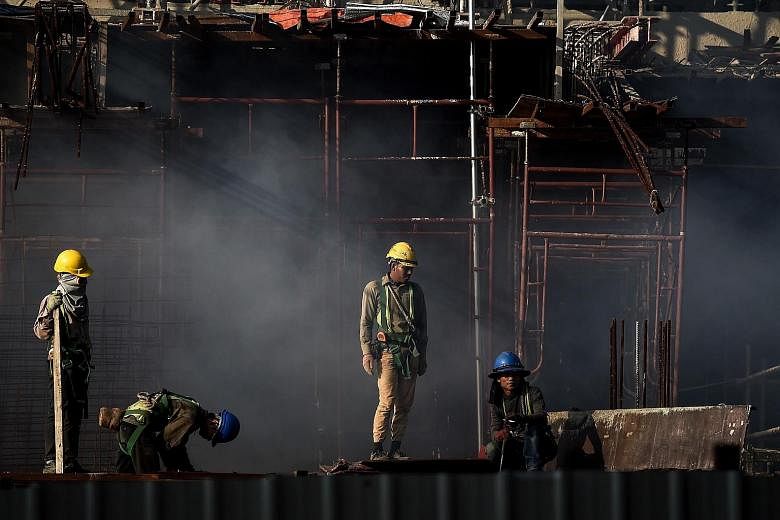SHAH ALAM • Deputy Prime Minister Ahmad Zahid Hamidi yesterday challenged Malaysian youths to take up the so-called "3D" jobs - dirty, difficult and dangerous - as he faces public anger over a government plan to bring in 1.5 million workers from Bangladesh over the next three years.
"Should Bangladeshi workers be brought in?" asked Mr Zahid, to which the youths attending the Selangor Youth Council general assembly said "no", according to the New Straits Times newspaper.
He then asked them: "Who here agrees to work in farms, to work under the sun and rain? To work in factories that are hot? To wash drains? To work as cooks at mamak (Indian Muslim) restaurants?"
He received a loud roar of affirmation. Still, it was not clear how many of them would eventually want to do blue-collar work, which is shunned by most Malaysians.
Malaysia has a labour force of 14.3 million, with a low unemployment rate of 3.3 per cent, according to the latest government statistics released in November.
Of these, "outside labour force" - or foreign workers - made up 6.9 million or 47 per cent of the total number of workers, according to the data.
And there are estimates by labour groups that an additional two million migrants are working in Malaysia illegally.
Thus, the government's recent announcement to bring in 1.5 million more workers angered many Malaysians, including the influential Federation of Malaysian Manufacturers (FMM). "Almost no one agrees with the decision by the government to allow in these foreign workers. No one is happy," political analyst Shahbudin Hussin wrote on his blog on Saturday.
FMM, the umbrella body for local manufacturers, said in a statement last week that the government must ensure that there are ready jobs for the new influx of workers.
FMM said while there have been "many challenges" hiring workers from existing source countries such as Nepal, Myanmar and Indonesia, it wanted a more transparent and efficient method of importing workers. In the past, labour agents appointed by the government made a lot of money as middlemen to bring in these workers, and passed the costs to employers and workers.
Mr Zahid said on Saturday that the plan to bring in more foreign workers was in response to requests made by employers.
"The government has been criticised following the announcement, as though it is us who wanted to bring in the workers. But the requests were made by employers and we are merely fulfilling the market demand," he was quoted in The Star newspaper as saying.
Employers often said Malaysians were not interested in doing "3D" jobs and "even if they do, they tend to quit fast", he said. "As chairman of the Cabinet committee overseeing the foreign workers and immigrants issues, I am sensitive to the demands from the industries.
"The decision was not made to disrupt opportunities for Malaysians, who are clearly not interested to work in certain sectors, especially those that are dirty, dangerous and difficult."
Johor's Menteri Besar Mohamed Khaled Nordin said Johoreans have expressed uneasiness with the presence of too many legal and illegal foreign workers, citing the Pasir Gudang area where many factories employ migrant workers.
The foreigners "have created social issues in the district and we can learn from what is happening in Singapore and we have to control these", he was quoted as saying by The Star on Saturday.
He said the government should ensure that employers put up dormitories for the guest workers.

